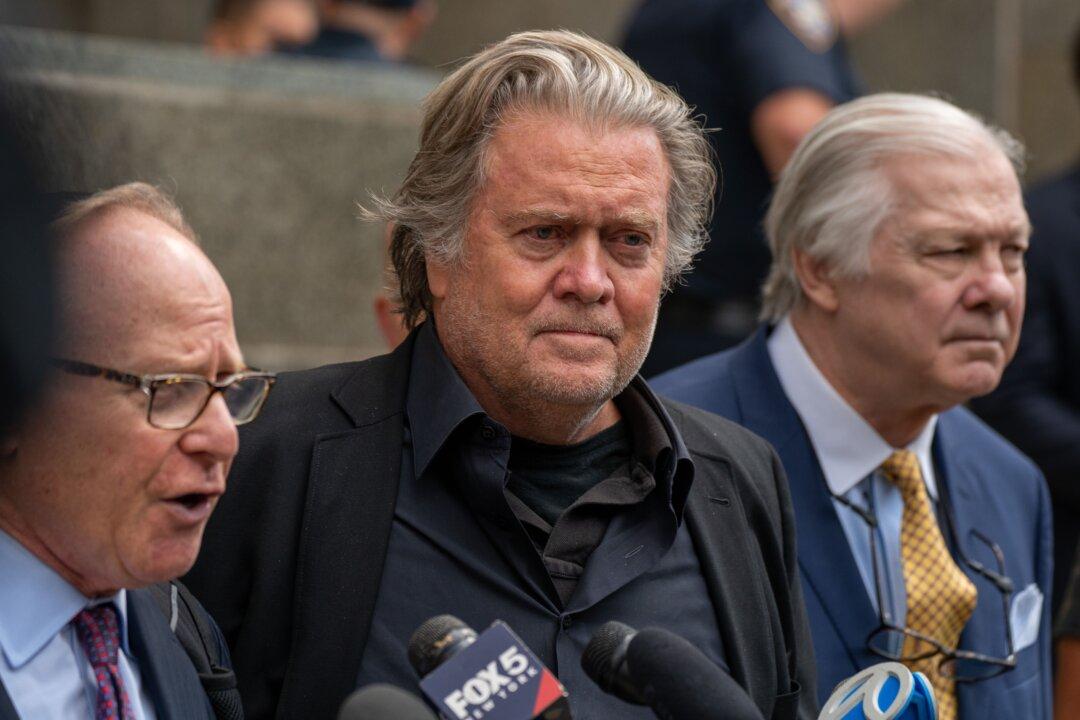The Department of Justice (DOJ) has proposed that former Trump adviser Steve Bannon serve six months in jail and pay $200,000 for defying a subpoena by the House Jan. 6 committee.
A jury in July found Bannon guilty on two misdemeanor counts of contempt of Congress for refusing to testify and provide documents to the Jan. 6 committee. His sentencing is scheduled for Oct. 21.





